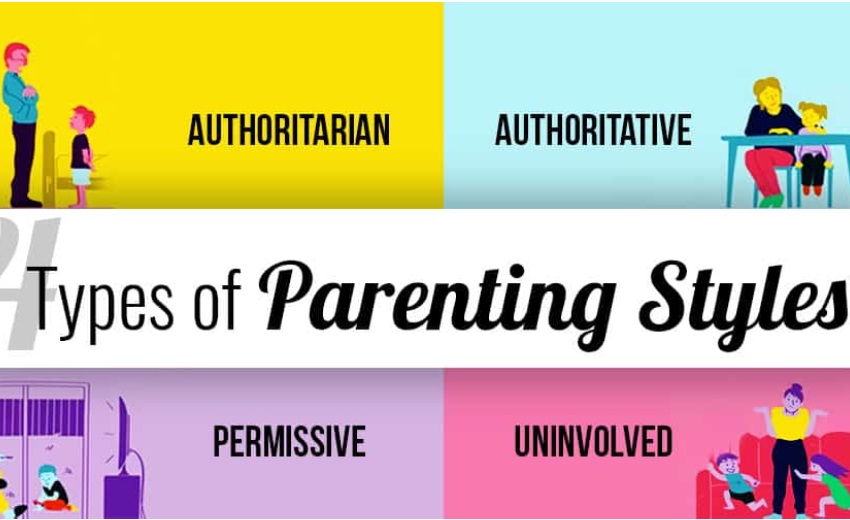
Your child’s weight and self-esteem are affected by several factors.Research has identified four different parenting styles. Below mentioned are different parenting tips.
Figure Of Authority:
- Genuineness
- Not Involved Allowable
- Each parenting style has its unique study of child-rearing, and it can be characterised by a number of characteristics.
- An Authoritarian Approach to Parenting
- Do any of these things ring true for you?Children, you believe, should be seen instead of heard. You believe in the adage “my way is the right way” when it comes to rules. You are careless with your child’s feelings.
If you can identify with any of these comments, you could be a dictator parent. Authoritarian parents believe that their children must constantly follow the rules.
When a child questions the reasoning for a regulation, authoritarian parents are known to respond, “Because I said so.” They seem uninterested in bargaining and are only concerned with carrying out commands. They also discourage children from taking part in problem-solving challenges or roadblocks. Instead, they make the rules and execute the consequences without regard for the children’s opinions. Authoritarian parents may utilise punishments instead of discipline. Rather than teaching youngsters how to make wise choices, they spend their time making them feel bad about their mistakes. Children’s of the authoritarian parents are much more prone to have low self-esteem because their opinions are not valued. They may also get furious or combative. Rather than thinking about how to improve their situation in the future, children frequently focus on their sentiments of wrath toward their parents.
Parenting With Power
Do any of these things ring true for you?
You’ve worked so hard to build and keep a positive relationship with the child.
You clarify why you have rules, enforce them, and issue consequences, but you also take your child’s feelings into account.
If any of these phrases apply to you, you could be a dominating parent.
Authoritarian parents establish and enforce rules, and they also respect their children’s perspectives. They recognise their children’s feelings while emphasising that adults are in authority. To reinforce excellent behaviour, positive discipline strategies such as praise & reward systems are used.
According to statistics, children who grow up with the authoritative parents are likely to become responsible persons who are comfortable expressing their opinions.
Children who are reared in a rigorous authority environment are much more to be satisfied and happy. They are also more able to make independent decisions and analyse safety risks.
Permission-based Parenting
- Do any of these things ring true for you?
- You set rules, but you almost never follow them.
- You don’t give out penalties very often.
- You feel that if you keep out of your child’s way, he or she will learn better.
If you identify yourself within these phrases, you might be a forgiving parent. Permissive parents are forgiving. They often only interfere when a serious issue emerges.
They’re very forgiving and believe that “kids will be kids.” When they do use repercussions, it is probable that they will not follow through on them. If a child begs, they can return privileges or let him leave time-out early if he agrees to be good. They regularly encourage their children to talk about their problems with them but very rarely try to discourage foolish decisions or poor behavior.
Children who struggle academically are more likely to behave with indulgent parents.
Because they reject authority and rules, they may have more behavioral troubles. They usually have low self-esteem & a lot of melancholy. Permissive parents are at a greater risk for health issues such as obesity because they struggle to control their junk food intake.
Parenting Absent Involvement
- Would any of these statements apply to you?
- You don’t ask your youngster about school or homework.
- You rarely know where the child is or who she is with.
- You don’t spend much time with your child.
If those statements apply to then, Uninvolved parents are frequently oblivious of their ranging from children. There aren’t many guidelines. It is possible that youngsters do not receive adequate teaching, love, or parental care.
Uninvolved parents expect their children should raise themselves. They do not devote much time and effort to meeting the basic needs of children. Parents who are unengaged may be negligent, but it is not always intentional. A parent is suffering from mental health and substance abuse issues, for example, maybe unable to address a child’s emotional and physical needs on a consistent basis.
Children who grow up with neglectful parents are more likely to experience depression.
They have a poor academic track record. They are also unhappy and have a lot of disciplinary concerns.
Final Thoughts:
Parents do not always fit into these categories, don’t be disheartened if you go through seasons or regions and you’re more liberal than the others.
If you are determined and devoted to becoming the best role model you can be, you may have a nice relationship with the child while still asserting your dominance in a healthy manner. In the long term, your firm demeanour will benefit your child.


